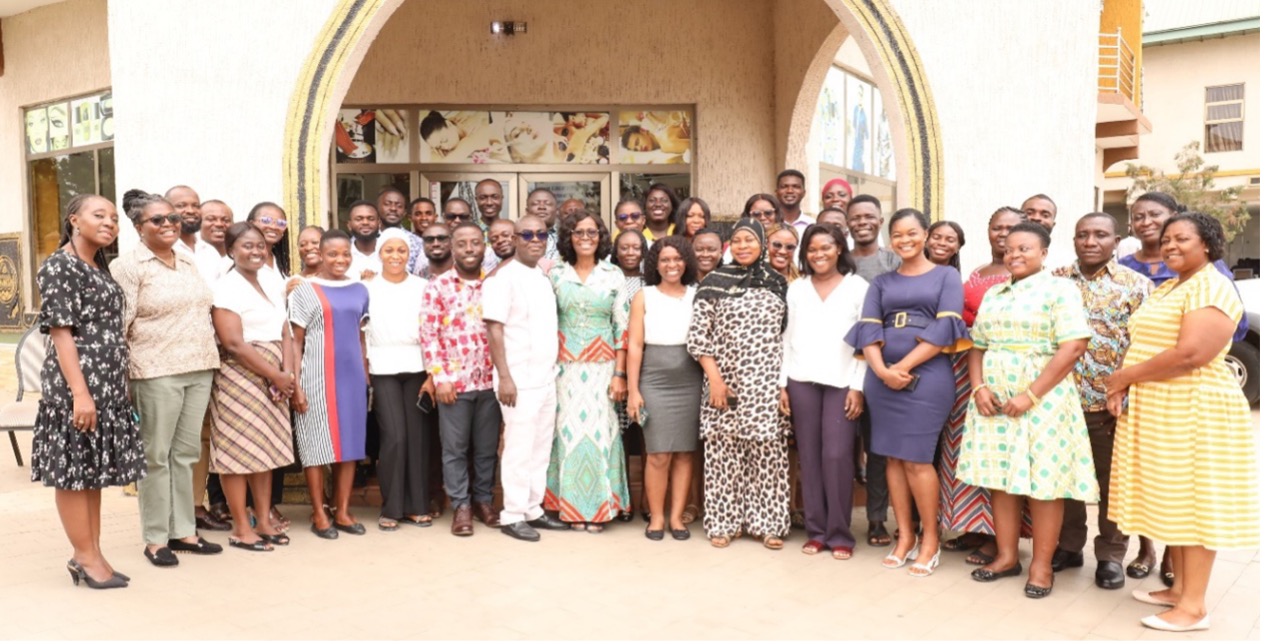FAO trained fisheries officers on best practices in post-harvest small-scale fisheries management in Ghana

©Suad Ahmed, Corporate Affairs Officer, Fisheries Commission
Kumasi, Ghana | FAO promoted a 5-day capacity development workshop for 45 fisheries officers and other stakeholders working in the small-scale fisheries subsector. The workshop, held from 9 to 13 September, aimed to build capacity of participants on general principles of food hygiene and strengthen fisheries officers and other stakeholders to adopt and utilize the SSF Guidelines and Best Practices Communication and Knowledge Products as training materials.
The workshop is part of a broader FAO initiative to support the implementation of the Voluntary Guidelines for Securing Sustainable Small-Scale Fisheries in the Context of Food Security and Poverty Eradication (SSF Guidelines), endorsed by the FAO Committee on Fisheries in 2014. Ghana is one of the beneficiary countries of the Flexible Voluntary Contribution (FVC) project titled “Implementing the Small-Scale Fisheries Guidelines for gender-equitable and climate-resilient food systems and livelihoods - Phase 2”. This project builds on achievements and needs identified from phase1 of the project (June 2021 – December 2023).
The training consisted of presentations, video on post-harvest best practices, interactive experience sharing and practical assignments.
Fisheries officers and one non-governmental organization (NGO) in the project communities shared their experiences with step-down trainings they have conducted in their communities and the target fishers who benefitted from these trainings. Step-down trainings are short community-based trainings organized using audio visuals or videos in local dialects. These trainings are demand driven and scheduled at the convenience of the small-scale fisheries organizations (SSFOs). Regarding the trainings, some of the shared key challenges identified by the communities were: difficulty or danger in accessing overbank communities; training in communities without power (some communities are not connected to the national grid, making it difficult to showcase video trainings in these communities); language barriers, especially during trainings, and non-availability of conducive training venues.
The workshop was also an opportunity to present the National Plan of Action for Sustainable Small-Scale Fisheries (NPOA-SSF) as a strategic roadmap for empowering small-scale fishing communities, improving their livelihoods, and ensuring the responsible management of marine resources. The stakeholders involved and stages of developing an NPOA-SSF were explained, along with how its development could provide a comprehensive framework aimed at promoting the long-term sustainability and resilience of small-scale fisheries in a country.
Next steps
Participants will engage with their communities to share the knowledge and information acquired during the workshop. Materials such as translated copies of and videos about the SSF Guidelines and videos on improved post-harvest practices with guiding manuals and post-harvest-related publications such as Take Care of Your Catch in various languages, were distributed to participants.
These materials are expected to guide fisheries officers and support them in conducting trainings in their respective operational areas. It was agreed that a monitoring system should be implemented to gather feedback on application of lessons learnt by colleague fisheries officers. Officers were encouraged to act as ambassadors for the dissemination of lessons learnt to other officers and fishers in general to support the development of the small-scale fisheries sub-sector.
